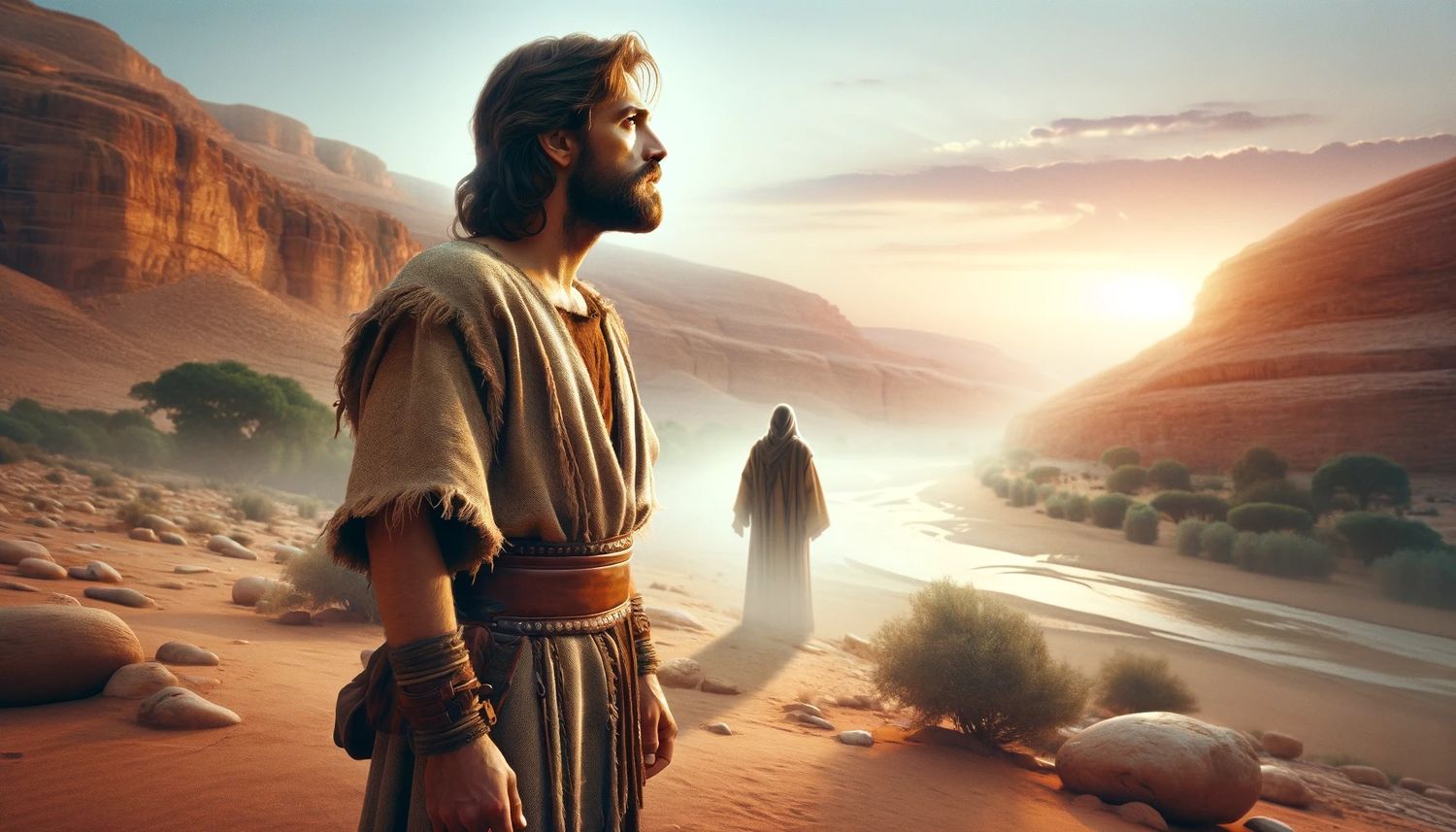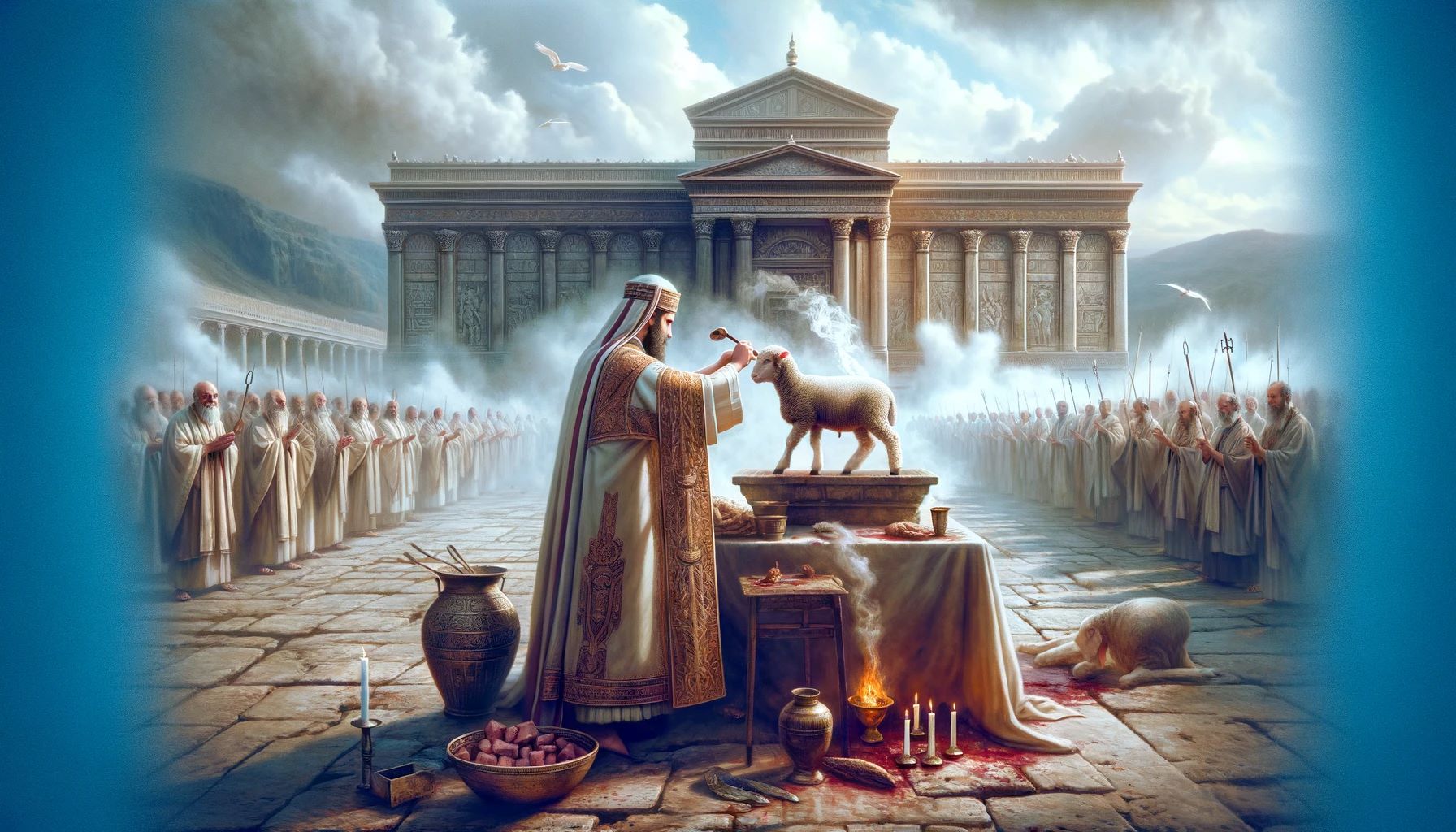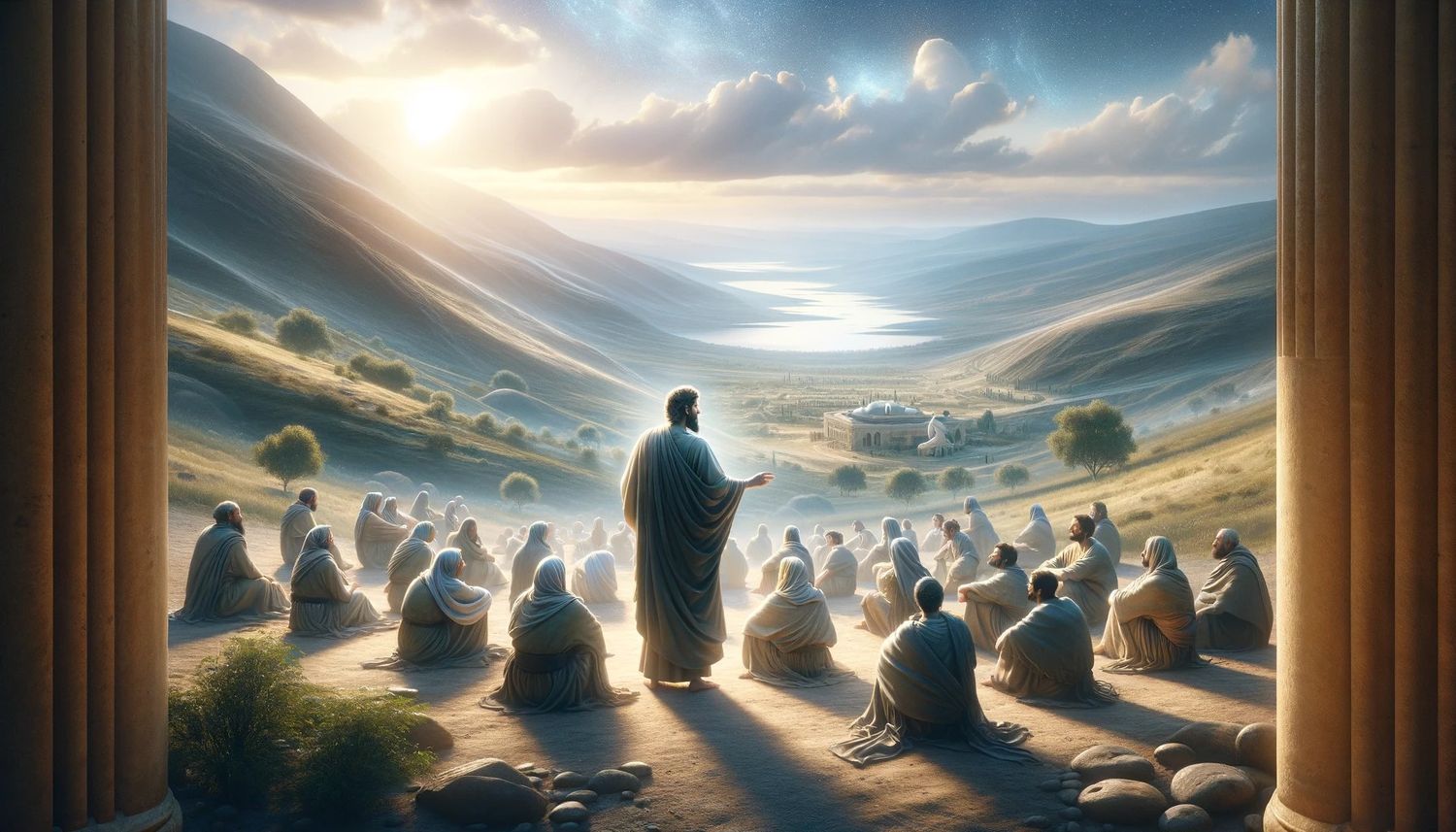Home>Christian Videos>Bible Stories>To Which Old Testament Prophet Do The Gospels Compare John


Bible Stories
To Which Old Testament Prophet Do The Gospels Compare John
Published: March 6, 2024
Jason DeRose, Managing Editor at Christian.net, uses his expertise in religion and journalism to deepen understanding of faith's societal impacts. His editorial leadership, coupled with a strong academic background, enriches the platform’s diverse content, earning him recognition in both journalism and religious circles.
Discover how the Gospels compare John to an Old Testament prophet in this insightful exploration of Bible stories. Uncover the connections today!
(Many of the links in this article redirect to a specific reviewed product. Your purchase of these products through affiliate links helps to generate commission for Christian.net, at no extra cost. Learn more)
Table of Contents
Introduction
The Gospels in the New Testament of the Bible often draw parallels between John the Baptist and several Old Testament prophets. These comparisons shed light on the significance of John's role in preparing the way for the ministry of Jesus Christ. In this article, we will explore the connections between John the Baptist and various Old Testament prophets, including Elijah, Malachi, Isaiah, and Jeremiah. By delving into these comparisons, we can gain a deeper understanding of the pivotal role that John the Baptist played in the narrative of the Gospels.
The Role of John the Baptist in the Gospels
John the Baptist is a central figure in the Gospels, particularly in the accounts of Matthew, Mark, Luke, and John. His role is primarily depicted as that of a herald, preparing the way for the coming of Jesus Christ. John's ministry is characterized by his preaching of repentance and baptism for the forgiveness of sins. He is portrayed as a bold and uncompromising figure, calling people to turn away from their sinful ways and to prepare for the arrival of the Messiah. John's significance in the Gospels is underscored by the fact that he is the one who baptizes Jesus, an event that marks the beginning of Jesus' public ministry. Through his preaching and baptism, John sets the stage for the unfolding of the redemptive narrative that is central to the Christian faith.
- John the Baptist is depicted as a herald preparing the way for Jesus Christ.
- His ministry emphasizes repentance and baptism for the forgiveness of sins.
- John's bold and uncompromising preaching calls people to turn away from sin.
- He plays a pivotal role in initiating Jesus' public ministry through the act of baptism.
Comparisons to Elijah and Malachi
In the Gospels, John the Baptist is frequently compared to the Old Testament prophets Elijah and Malachi. The resemblance between John and Elijah is particularly striking, as both figures share similar characteristics and roles. Like Elijah, John the Baptist appears in the wilderness, dressed in a garment of camel's hair with a leather belt around his waist. This distinctive attire harkens back to the description of Elijah in the Old Testament, creating a visual link between the two prophets. Furthermore, both Elijah and John the Baptist are known for their bold and uncompromising proclamation of God's message, fearlessly confronting the religious authorities of their time. The Gospel of Matthew explicitly identifies John the Baptist as the fulfillment of the prophecy in Malachi 3:1, which speaks of a messenger who will prepare the way for the Lord. This connection underscores John's role as a prophetic figure in the tradition of Malachi, heralding the imminent arrival of the Messiah. The comparisons to Elijah and Malachi serve to emphasize the continuity between the Old Testament prophetic tradition and the ministry of John the Baptist, highlighting the significance of his role in the narrative of the Gospels.
- John the Baptist shares similarities with Elijah in appearance and role.
- Both prophets boldly proclaim God's message and confront religious authorities.
- The Gospel of Matthew identifies John as the fulfillment of the prophecy in Malachi 3:1.
- These comparisons underscore John's role as a prophetic figure preparing for the Messiah's arrival.
Similarities to Isaiah and Jeremiah
In addition to the comparisons to Elijah and Malachi, the Gospels also draw parallels between John the Baptist and the Old Testament prophets Isaiah and Jeremiah. Like Isaiah, John the Baptist is portrayed as a voice crying out in the wilderness, urging people to prepare for the coming of the Lord. This imagery evokes the prophetic tradition of Isaiah, who spoke of preparing the way for the Lord in the desert. Furthermore, both Isaiah and John the Baptist emphasize the theme of repentance and the need for spiritual readiness in anticipation of God's redemptive work. The Gospel of Mark specifically references the prophecy of Isaiah, associating it with the ministry of John the Baptist and highlighting the continuity between the Old Testament prophetic message and John's proclamation.
Similarly, the parallels between John the Baptist and Jeremiah are evident in their shared emphasis on calling people to repentance and warning of impending judgment. Jeremiah, known as the "weeping prophet," delivered messages of impending doom and called for a return to God. John the Baptist echoes this theme of impending judgment, warning the religious leaders and the people at large to repent and turn to God. Both prophets confront the prevailing religious attitudes of their time, challenging the people to reevaluate their priorities and align themselves with God's purposes. The comparisons to Isaiah and Jeremiah serve to situate John the Baptist within the broader prophetic tradition of Israel, emphasizing the continuity of his message with that of the Old Testament prophets.
- John the Baptist is depicted as a voice crying out in the wilderness, akin to Isaiah’s prophetic imagery.
- Both Isaiah and John emphasize the theme of repentance and spiritual readiness for God’s redemptive work.
- The Gospel of Mark associates the ministry of John the Baptist with the prophecy of Isaiah, highlighting continuity with the Old Testament message.
- John the Baptist and Jeremiah share a focus on calling people to repentance and warning of impending judgment.
- Both prophets challenge prevailing religious attitudes and call for a reevaluation of priorities in light of God’s purposes.
John the Baptist as a Unique Prophet in the Gospels
In the Gospels, John the Baptist emerges as a unique and compelling figure, distinct from the traditional portrayal of Old Testament prophets. While he shares similarities with various prophets of the Hebrew Bible, John's role and message carry distinct characteristics that set him apart. Unlike the prophets who preceded him, John the Baptist is not merely a messenger preparing the way for the coming of the Lord; he is the one who directly introduces and baptizes Jesus, the long-awaited Messiah. This pivotal role distinguishes John as a prophet who not only anticipates the arrival of the Christ but actively participates in the initiation of Jesus' public ministry.
Furthermore, John's message of repentance and baptism for the forgiveness of sins takes on a unique significance in the context of the Gospels. His call for spiritual renewal and readiness aligns with the imminent arrival of the kingdom of God, ushered in by the presence of Jesus. While the Old Testament prophets foretold the coming of the Messiah, John the Baptist stands as a transitional figure, bridging the prophetic anticipation of the Messiah with the tangible presence of Jesus in the world.
Moreover, John's ascetic lifestyle and unwavering commitment to his prophetic mission underscore his distinctiveness as a prophet in the Gospels. His choice to dwell in the wilderness, apart from the centers of power and influence, reflects a deliberate rejection of worldly comforts and a singular focus on his divine calling. This intentional detachment from societal norms and conventions sets John apart as a prophetic voice that challenges the status quo and calls for a radical reorientation towards God's kingdom.
In addition, the Gospels portray John the Baptist as a figure who fearlessly confronts the religious authorities of his time, including the Pharisees and Sadducees. His uncompromising stance and bold rebukes directed at those in positions of religious leadership highlight his role as a prophet who fearlessly speaks truth to power. This confrontational aspect of John's ministry distinguishes him as a prophetic voice that does not shy away from challenging the prevailing religious structures and practices, emphasizing the need for genuine repentance and transformation.
Overall, John the Baptist's unique position as a prophet in the Gospels is characterized by his active involvement in the initiation of Jesus' ministry, his distinctive message of repentance and baptism, his ascetic lifestyle, and his fearless confrontation of religious authorities. These elements collectively contribute to his singular role as a prophetic figure who not only anticipates the coming of the Messiah but actively paves the way for the unfolding of God's redemptive plan in the person of Jesus Christ.
Read more: Where Is Baptism In The Old Testament
Conclusion
In conclusion, the comparisons between John the Baptist and various Old Testament prophets in the Gospels serve to underscore the significance of his role in preparing the way for the ministry of Jesus Christ. The parallels to Elijah, Malachi, Isaiah, and Jeremiah highlight the continuity between John's message and the prophetic tradition of Israel, emphasizing the fulfillment of ancient prophecies in the person of John the Baptist. Furthermore, John's unique position as a prophet in the Gospels, marked by his active involvement in the initiation of Jesus' ministry, his distinctive message of repentance and baptism, his ascetic lifestyle, and his fearless confrontation of religious authorities, sets him apart as a pivotal figure in the redemptive narrative. By exploring these connections, we gain a deeper understanding of the pivotal role that John the Baptist played in the narrative of the Gospels and the unfolding of God's redemptive plan in the person of Jesus Christ.














